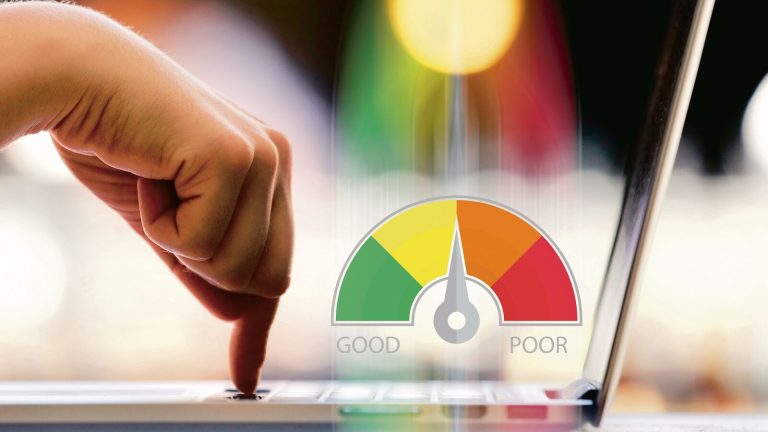In a rapidly developing country like India, a credit score of above 770 is considered as an excellent score. Any score in this range enhances and boosts your eligibility for loans and credit cards on favourable terms. Sustaining such a high score requires consistent financial composure, discipline and awareness.
The focus of borrowers hence should shift towards maintaining such a high credit score over a long period of time. So as to ensure seamless availability of credit instruments such as personal loans, credit cards etc.
770+ credit score: Why it pays and how to keep it
According to Ashish Goyal, Co-Founder, Fibe, “Maintaining a good credit score of over 770 not only helps you gain easy access to funds but also provides higher credit limits. To achieve and sustain such a score, consistency in financial behavior is key. Timely repayment of credit card bills and EMIs plays a vital role, as even a single missed or delayed payment can have a significant negative impact.”
He further added, “Equally important is managing your credit utilisation optimally and refraining from applying for multiple loans or credit cards in a short span—this signals responsible credit behavior and positions you as a low-risk borrower in the eyes of lenders.”
On similar lines, according to Yash Desai, Co-founder, ZET, “To maintain a 770+ credit score, pay EMIs and credit card bills on time, keep credit utilisation under 30% of your credit limit, and avoid unnecessary credit inquiries. If you’re new to credit, start with a secured credit card to build a strong repayment history. Consistency in timely payments is key to long-term credit health.”
Therefore, to help you maintain a credit score of over 770 on a long-term basis, here are seven key strategies that you can follow diligently:
1. Timely repayment of dues
You need to be consistent with paying your personal loan EMIs and your credit card bills on or before the due date. It is something that is non-negotiable. Your payment history significantly impacts your credit score and even a single missed EMI payment can have an immensely negative impact on your overall credit profile.
2. Maintain low credit utilisation
Focus on keeping your credit utilisation ratio below the 30% mark of your total allowed credit limit. High credit utilisation clearly indicates credit dependency and over-reliance on debt. Such practices on a consistent basis can lower your credit score.
3. Diversify your credit mix
Try to have a balanced mix of both unsecured (example credit cards) and secured (example home loans) credit in your portfolio. This will demonstrate your ability to efficiently manage various different types of credit lines and personal loans responsibly which might result in positively influencing your credit score.
4. Regularly monitor your credit report
Consistently reviewing your credit report will help you in checking and identifying inaccuracies or any fraudulent activities that could harm your credit score. You can also access your credit report for free once a year from major credit bureaus such as CRIF High Mark, Equifax, CIBIL and Experian to get an idea about how you are placed as a borrower in the eyes of your respective lender based on your credit score.
5. Limit new credit applications
Frequent new applications for personal loans and credit cards can result in multiple hard inquiries on your credit profile. This is taken as a sign of desperation and over reliance on credit to meet day to day needs by prominent lender institutions. Such a development can lower your credit score, hence only consider applying for new credit only when you have no other option left.
6. Keep old credit accounts active
The longer your credit history the better it is. The length of your credit history contributes in a positive way to your credit score. That is why keeping older credit accounts such as credit cards, personal loans etc open, especially those without annual fees can help you in maintaining a longer credit history.
7. Avoid settling or defaulting on loans
Making a compromise and settling loans for less than the owed amount of money or defaulting on the entire amount altogether can severely damage your credit score. That is why, to maintain healthy financial health, strong credit profile and a high credit score to ensure that you repay debts in full to showcase a solid credit managing behaviour.
Conclusion
Therefore, maintaining a credit score of over 770 demands financial discipline and consistency along with low credit utilisation and timely repayments of availed credit. Further, by avoiding defaults, limiting new credit applications and keeping older credit accounts active you can ensure long-term creditworthiness. Such a score can also go a long way to assist you in securing the best loan and credit card offers.
Disclaimer: Mint has a tie-up with fintechs for providing credit; you will need to share your information if you apply. These tie-ups do not influence our editorial content. This article only intends to educate and spread awareness about credit needs like loans, credit cards and credit scores. Mint does not promote or encourage taking credit, as it comes with a set of risks such as high interest rates, hidden charges, etc. We advise investors to discuss with certified experts before taking any credit.



